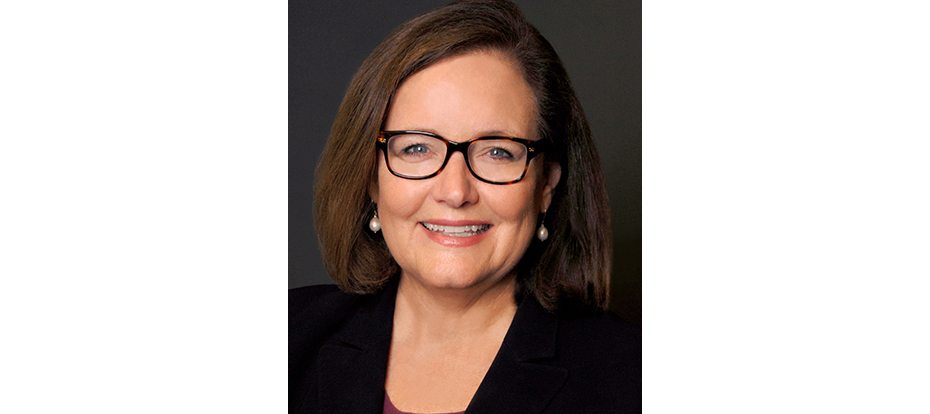
YaleNews
When she served on the board of trustees at a small liberal arts college in Boston, Kate Walsh ’77 SPH ’79 was a close confidante of the college president, a trusted adviser who offered financial guidance and helped plan major building projects.
“She was a very, very strong trustee,” said Tom Hynes, who chaired Emmanuel College’s board of trustees while Walsh was vice chair from 2012 to 2016. “She was always a sort of counsel to the president, giving her advice oftentimes by phone rather than in meetings.”
Now, Walsh is running for a soon-to-be-vacant alumni fellow position on the Yale Corporation in an election that will last until mid-May.
Yale released short biographies of Walsh and her opponent Roger Lee ’94 when polls opened on April 7. But beyond those brief sketches, many alumni know little about the candidates running for one of the six alumni fellow positions on Yale’s highest governing body. Last week, the University — which has a policy prohibiting candidates from campaigning in the alumni fellow election — intervened to prevent the News from holding endorsement interviews with Walsh and Lee.
But a look at past media coverage of Walsh, as well as recent interviews with her friends and colleagues, offers a portrait of a hardworking leader known for making complex decisions quickly and assertively.
Walsh is the president and CEO of the Boston Medical Center, a nonprofit organization that primarily serves low-income patients. Walsh, the daughter of a Brookline, Massachusetts, police officer and the first in her family to attend college, used to serve on the governing board of Northeastern’s business school in addition to her work at Emmanuel. Before taking over at BMC, she was the chief operating officer at Brigham Health, another Boston-based medical center. And at Yale, she serves on the University Council, a committee that advises the president, and has previously worked for the Yale Corporation Committee on the School of Medicine, a task force whose membership sometimes consists of outside experts as well as trustees.
“She’s brilliant, [and] has extraordinary values, a passionate and sympathetic mind,” said Partners in Health CEO Gary Gottleib, who collaborated with Walsh when they both worked at Brigham in the mid-2000s. “She’s a natural leader, probably the best team builder I’ve ever met.”
According to Gottleib, Walsh has a track record of making fast, assertive choices rather than “[wasting] time and sort of lumbering along.” Walsh demonstrated that ability when she led the development of a new cardiovascular facility at Brigham, he said, arriving quickly at complex decisions as she oversaw the planning and construction of the 10-story building, which opened in 2008.
In a 2004 interview with the Brigham and Women’s Hospital Bulletin, Walsh described herself as “a fan of clear decision-making and not belaboring issues that clearly fall into the ‘yes or no’ category.”
Walsh served on the board at Emmanuel — a private Roman Catholic liberal arts college that serves around 1,850 undergraduates — from 2006 to 2016 and was vice chair for the final four years of her tenure. Janet Eisner, who has served as president of the college for more than three decades, said she valued Walsh’s advice on financial matters. “Fifteen minutes with Kate can be worth more than hours with others,” Eisner said.
During her time at Emmanuel, Walsh helped coordinate the construction of a science building that opened in 2009 and a housing facility that is currently in the works. While working on the two projects, Walsh managed Emmanuel’s debt and worked to raise capital by leasing the college’s excess real estate, Hynes said.
“As a trustee, she was the best you can get: perceptive, very smart, very understanding of the issues of a major institution with lots of pressures,” he said. “She … could analyze problems and come down with a synthesized response very quickly versus someone who would ponder for days.”
If alumni elect her to the Corporation, Walsh will join a board that students and faculty often criticize for the slow pace of its decision-making on issues ranging from the naming of campus buildings to Yale’s investments in the fossil fuel industry. It is unclear where Walsh stands on controversial topics like naming, divestment and the transparency and accessibility of the Corporation. But Gottleib said he “really has yet to see anyone who can compare to her transparency and frankness.”
In March, Walsh wrote an op-ed in the Boston Globe criticizing the Republican Party’s ongoing efforts to repeal the Affordable Care Act. And according to documents filed with the Federal Election Commission, Walsh has donated thousands of dollars to Democratic politicians, including a $2,700 contribution to Hillary Clinton’s LAW ’73 presidential campaign in October 2015. In her current job, Walsh makes about $1.4 million a year, according to Boston Magazine.
But before she was the politically active leader of a major medical center, Walsh was an undergraduate in Saybrook College and a member of the women’s hockey team, which became a varsity sport in 1978, the year after she graduated. Debra Weaver ’78, who was the inaugural captain of the women’s varsity hockey team, said Walsh had a “great spirit and a good sense of humor.”
“She was a team player. I have nothing but fond memories of her,” Weaver said. “We were a club, we were just getting started. She was right there trying to make history like the rest of us.”
The 16-member Yale Corporation typically meets five times a year.







